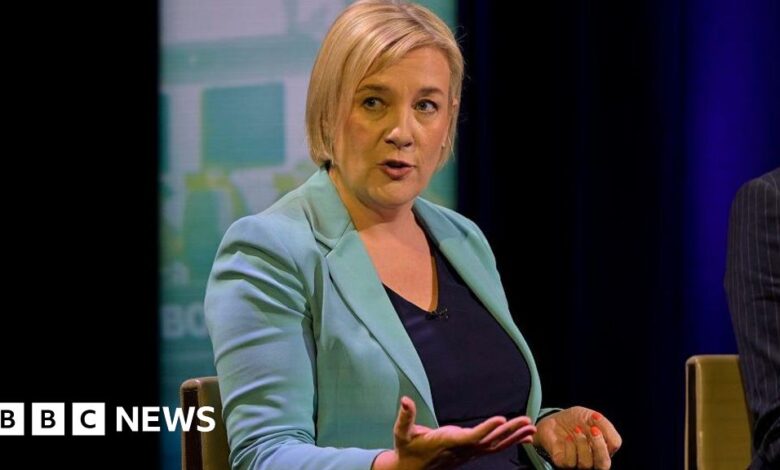Lib Dems want to use wartime powers to clear asylum backlog

The government should use emergency wartime powers to clear the asylum backlog and reduce the use of hotels, the Liberal Democrats have said.
Lib Dem home affairs spokeswoman Lisa Smart said her party would use the Civil Contingencies Act to set up temporary “Nightingale processing centres” to deal with asylum claims.
The Act gives governments temporary, sweeping powers to deal with major incidents and national emergencies, including during wartime.
Smart told reporters it was needed to secure the funds for a massive increase in asylum case workers in a short period of time, adding: “We want the government to get a grip on this. Using the Civil Contingencies Act is one way of doing that.”
The government has said it wants to end the use of asylum hotels by 2029 at the latest and is working to reduce the backlog of asylum claims.
At the end of June 2025, around 70,500 asylum cases were pending an initial decision, down from 134,000 at the end of June 2023, according to official statistics.
Smart said: “We want to see Nightingale processing centres set up, increase the number of case workers processing those applications from 2,000 to 4,000, process those applications far more quickly.”
She argued this was the “right thing to do” for asylum seekers living in hotels, communities hosting hotels, and taxpayers.
The party says it would also end the ban on asylum seekers working and get them out of hotels and into “their own accommodation”, as part of a move to a more “humane” system.
The Liberal Democrats are focusing on law and order on the first day of their annual conference in Bournemouth.
The party is also calling for police desks to be opened in supermarkets, libraries and other public places to boost confidence in policing and make it easier for people to report crime and share information.
Smart told BBC Radio 4’s Today programme that people “don’t see the police often enough” and that it “shouldn’t be as hard as it is” to give evidence.
In her conference speech, she said “too many crimes go unreported and unsolved” and her plan would bring police “back into the heart of communities”, and make them more visible and accessible.
The Lib Dems have not specified exactly how many new counters should be opened, but its own “police desk promise”, if it was in power, would see at least one counter opened in every local council area across England and Wales.
The party says the cost of the scheme would be covered by axing police and crime commissioners, which the party has previously estimated cost more than £100m in the four years to 2023 – cash it has also earmarked for rural crime teams.
The Labour government has announced plans for PCC responsibilities to be taken on by a new wave of elected mayors in the coming years.
The Lib Dems say the desks would not fulfil all the functions of police stations, but would allow members of the public to share information and report crime.
This would mean they have a more extensive role than engagement centres or pop-up desks typically used by neighbourhood police teams, which are sometimes set up in places such as libraries and community centres.
Some forces have also experimented with installing touch-screen terminals in supermarkets in order to boost crime reporting rates.
Almost half of London’s remaining station front counters are set to close in an attempt to save costs. The Metropolitan Police began closing front counters in 2013.
The capital’s Labour mayor Sir Sadiq Khan had previously pledged to retain at least one 24-hour counter in each of the 32 boroughs.
But last week he said he had changed his mind, arguing counters were used by “very few people” and the £7m savings generated by the cuts would be better spent on an improved command and control centre.




